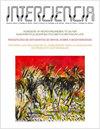锌纳米颗粒减轻了细菌脂多糖母性诱导的rat�s胎儿睾丸损伤
IF 0.4
4区 综合性期刊
Q4 ECOLOGY
引用次数: 0
摘要
脂多糖(LPS)是革兰氏阴性菌的主要成分,在细菌死亡时释放。LPS对发育有不利影响,包括胚胎吸收和宫内胎儿死亡,以及宫内生长迟缓。妊娠期暴露于脂多糖是锌缺乏的主要原因,导致胎儿发育不良。本研究旨在评价锌纳米颗粒(Zn-NPs)替代传统锌对LPS诱导的大鼠子代睾丸损伤的治疗作用。将24只孕鼠随机分为4组:对照组、Zn-NPs组、LPS组和LPS +Zn-NPs组。出生后,各组雄鼠与母鼠一起饲养至断奶日(出生后第21天;PND21)。在PND 21时,处死后代,解剖,切除睾丸进行组织学和生化检查。结果显示,妊娠早期的LPS与雄性后代(出生后第1、7、14和21天)的体重减轻和睾丸部分显著的组织病理学征象有关。此外,睾丸切片出现caspase-3蛋白强表达和Bcl-2蛋白阴性染色,提示LPS的凋亡作用。与对照组相比,lps母系诱导子代睾丸抗氧化剂(SOD和CAT)水平显著降低,MDA和caspase-3水平显著升高。另一方面,从妊娠第14天至断奶期间,母鼠给予Zn-NPs处理,成功地减轻了LPS诱导的睾丸组织病理、细胞凋亡和生化变化。本文章由计算机程序翻译,如有差异,请以英文原文为准。
Zinc-nanoparticles alleviate the testicular damage of rat�s fetuses maternally induced with bacterial lipopolysaccharides
Lipopolysaccharides (LPS) are a major component of Gram-negative bacteria and are released when bacterial death occurs. LPS has detrimental effects on development, including embryonic resorption and intrauterine fetal death, and intrauterine growth retardation. Exposure to LPS during gestation is a major causative factor for zinc deficiency, which results in poor development of foetuses. This work aims to evaluate the therapeutic role of zinc nanoparticles (Zn-NPs) instead of traditional zinc against testicular damage in rat offspring maternally induced with LPS. 24 pregnant rats were allocated into four groups at random: control, Zn-NPs, LPS, and LPS +Zn-NPs groups. After birth, the male offspring for each group were kept with their mothers till weaning day (post-natal day 21; PND21). At PND 21, the offspring were sacrificed, dissected, and the testes removed for histological and biochemical investigation. The results revealed that LPS during early gestation is implicated in the reduction of body weight in male offspring (at post-natal days 1, 7, 14, and 21) and remarkable histopathological signs in their testicular sections. Additionally, the testicular sections appeared strongly expressed for caspase-3 protein and negatively stained for Bcl-2 proteins, which indicated the apoptotic effect of LPS. Also, the testicular antioxidants (SOD and CAT) appeared significantly lowered, while the levels of MDA and caspase-3 appeared significantly higher in LPS-maternally induced offspring if compared with controls. On the other hand, treatment of mother’s rats with Zn-NPs from day 14 of gestation until weaning successfully alleviated the histopathological, apoptotic and biochemical changes in the testicular tissue induced by LPS.
求助全文
通过发布文献求助,成功后即可免费获取论文全文。
去求助
来源期刊

Interciencia
综合性期刊-生态学
CiteScore
0.80
自引率
25.00%
发文量
1
审稿时长
4-8 weeks
期刊介绍:
Interciencia is the monthly multidisciplinary publication of the INTERCIENCIA Association. It is dedicated to stimulate scientific research, its humanitarian use and the study of its social context, specially in Latin America and the Caribbean and to promote communication between the scientific and technological communities of the Americas.
Interciencia has been published uninterruptedly since 1976. Its Founding Director, Marcel Roche (endocrinologist and sociologist of science) was editor until 2008, and thereafter Miguel Laufer (neurobiologist) has been in charge. It has been included since 1978 in the Science Citation Index and other international indexes, and since 2008 it maintains an open access electronic version with material from 2005 onwards.
The priority areas of the journal, without exclusion of other areas, are Agronomy, Arid Lands, Food and Nutrition, Biotechnology, Ecology and Environment, Energy, Innovation and Technology Transfer, Marine Resources, Non-renewable Resources, Science Education, Science Policy, Study and Sociology of Science, and Tropical Forests.
Interciencia publishes in Spanish, Portuguese and English research and review articles, communications and essays, all of which are subjected to peer review. Additionally, it includes non-refereed sections such as Editorial, Letters to the Editor, Open Town Hall, Book Reviews and Upcoming Events.
All the material submitted to the journal for publication and accepted by the Editorial Committee in view of its quality and pertinence is subjected to review by peer specialists in the corresponding fields of knowledge. Neither the INTERCIENCIA Association, nor the journal or the institutions to which the authors belong carry responsibility for the contents. Signing authors are responsible for the material published under their names.
 求助内容:
求助内容: 应助结果提醒方式:
应助结果提醒方式:


